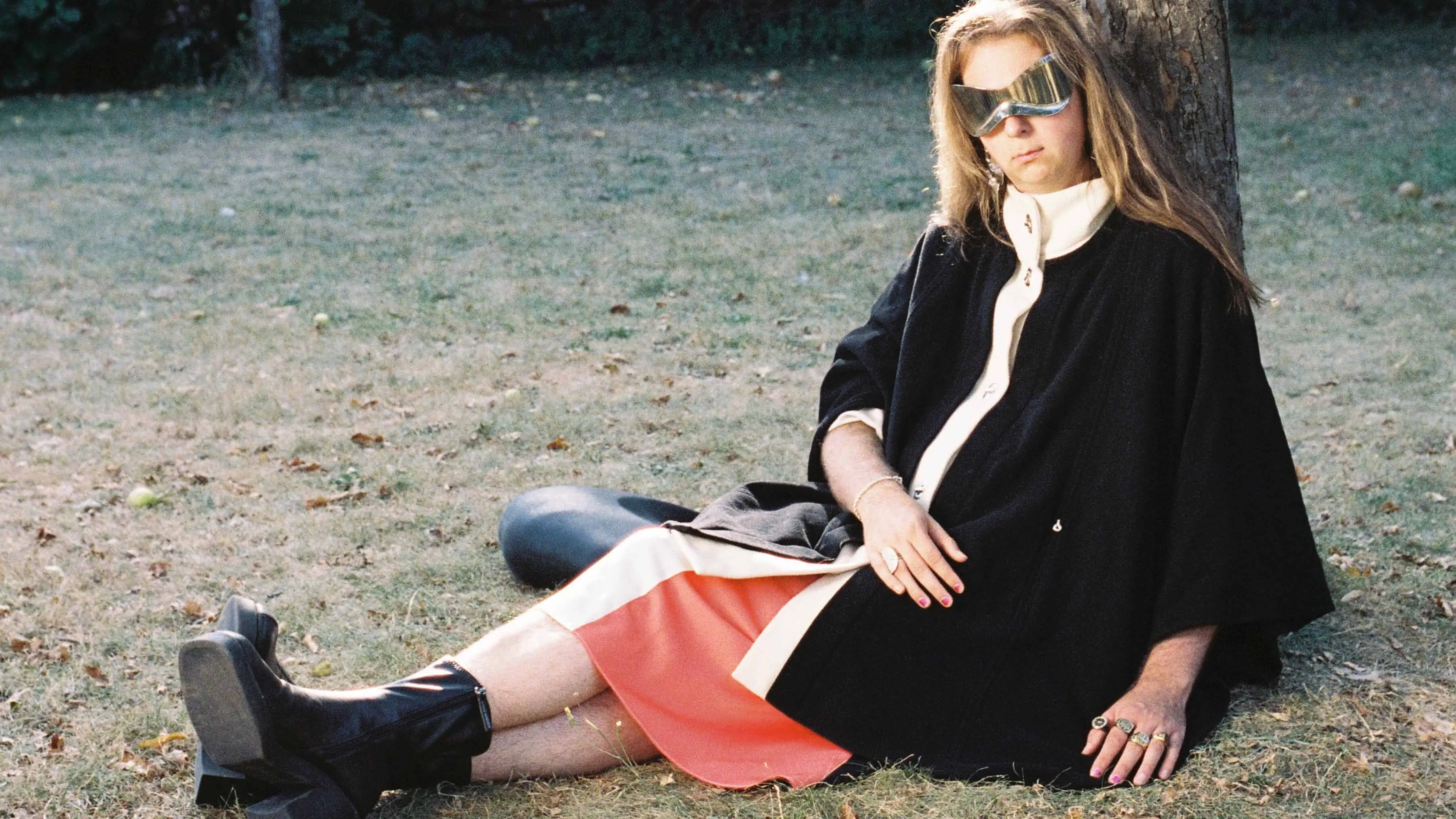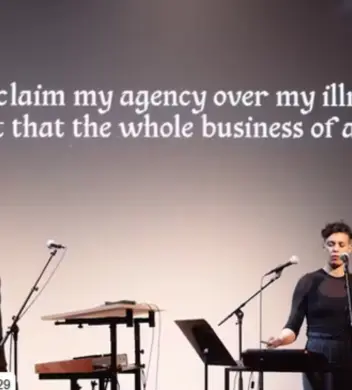Fragments of Becoming

Madonna Lenaert moves between worlds with the fluid grace of someone who refuses single definitions. She facilitates spaces where identity can breathe without suffocating certainty, and her current work with NTGent's Firestarter—a collective fire ritual performance combining theatre, music, communal transformation, and the launch of their season—asks what happens when we stop demanding joy from transformation.
What does your practice look like?
I work quite slowly, artistically. I need to read a lot. And I need to talk and see a lot. It's hard for me to define because I have this job at KASK&Conservatorium that requires a specific way of thinking that's structured and pragmatic, which sometimes makes it difficult to make artistic work. There’s pragmatism and a sense of reality that make dreaming very difficult, and yet. The practice consists of finding ways, hacking away at that to-do list and creating time and space to dream.
<img class="editorial-image-50-left" src="https://cdn.prod.website-files.com/61eebcc683107b99137f4423/68c828e01ec5219e0635b021_3.avif"/>
<img class="editorial-image-50-right" src="https://cdn.prod.website-files.com/61eebcc683107b99137f4423/68c828e0f2daed618e602bdc_2.avif"/>
What does your Firestarter proposal look like?
Firestarter will be a collective fire ritual performance to launch of the NTGent season. The initial idea was to start working with the notion of sorrow. This is a way for me to react to a kind of social demand towards trans people that everything must always be certain. That everything must be fun. While a lot of being trans isn't fun, really. It can be difficult. It’s ultra slippery. You can't grasp it the whole time. So, my idea now is to make a celebration of ambiguity instead of a rite of passing. Because nobody is passing. Nobody is ‘transitioning’ from one thing to another. That's not a thing. People are changing, always becoming. And that's something else entirely.
There's no space in society to name that being trans sometimes isn't fun either. That it's difficult, too
Talking about sorrow and grief, you once said you believed in killing your former self?
I used to say I had to murder the little boy I once was to be able to exist. And that's true. I still believe that. But that trajectory taught me that I didn't just kill him; I buried him and built a new house on top of that. That's not gone, that’s a sacred site. That's essentially the foundation of who I am now. That's been such a new insight for me, to maintain a new relationship with that former self.
Actually, it's already all happened. It's already done
How do you know a transformation has happened?
I think we sometimes find it hard to see how far we’ve already come in a process. Sometimes you wonder how one deals with all that? But really, it's already happened. It's already there. We've already done it. I feel that strongly within the relationship with my parents. I've already been deciding for 15 years to do this. Questioning your mode of being so profoundly means you’re already doing it.
We're going to come together with that very diverse group of people and do something that's valuable for us
We get distracted by a side conversation on fragmentation. Why choose fragmentation over focus, Madonna?
I really like having a splintered life. To have to be here today and there tomorrow. I find that pleasant. Because that also allows me to merge and change myself. And that's nice. If this gets stuck, then I can occupy myself with that for a while. And then maybe that will work again tomorrow. I always have things to do.
<img class="editorial-image-50-left" src="https://cdn.prod.website-files.com/61eebcc683107b99137f4423/68c828e067584af4bbe095a1_5.avif"/>
<img class="editorial-image-50-right" src="https://cdn.prod.website-files.com/61eebcc683107b99137f4423/68c828e137da7f363e606f2f_4.avif"/>
What do you hope for Firestarter?
I don't yet know what it will become. We meet every Saturday with the group, just two or three more times before the event. The group is a diverse group of people who responded to an open call for the co-creation of a ritual to honour transitioning. What's important to me is that something happens that's valuable for everyone involved. That's why I feel little pressure. I don't have this sense that now something must happen.
It's not about creating a big, performative, theatrical event. The fact that it's called a ritual leaves a beautiful openness to define ourselves. A ritual doesn't always need to be collective, let alone in front of an audience.
We're moving towards what would mainly be a celebration of ambiguity. That was the central concept we embraced. Because this idea of transition just isn't accurate for many people. How can we collectively celebrate this place where we already are? Perhaps we don't need to go anywhere else. Perhaps it's already different here.
<img class="editorial-image" src="https://cdn.prod.website-files.com/61eebcc683107b99137f4423/68c828e0966e1d20863ce38d_6.avif"/>
<div class="editorial-banner"> <div class=“editorial-credits”> @madonna.lenaert<br/>@ntgent<br><br>Firestarter, NTGent’s season opening, takes place on 27.09.2025 at 21:00 on Sint-Baafsplein in Ghent. Everyone is welcome to gather around the fire (admission is free but needs registration). Conceived as a ritual by Barbara Raes, Alexandra Broeder and NTGent, Firestarter marks the first highlight of Fire, Walk with Me – a months-long project in which NTGent collaborates with children aged 11 and 12, alongside ten partner groups including De Sleutel, Titannick and Victoria Deluxe.<br><br>Madonna Lenaert is an education coordinator at KASK Drama, co-hosts the Flikker Op podcast, and sits on various advisory boards, including KifKif and the GKO. Her work with Magdalena Collective included the masterwork DO YOU LOVE HER? and the album Salt. She graduated from KASK's drama programme in 2023.</div></div>
Different Class works with the interest of their community at heart.
Our work’s purpose is to foster a solid network for independent artists, those who love them, and those who want to support them. Become a member to contribute to the local Belgian art scene.






